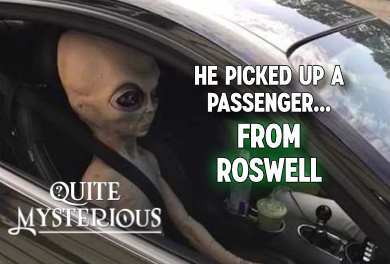Space & Astronomy
October 8, 2022 · 0 comments
0 comments

The devastation caused by this impact is unimaginable. Image Credit: NASA / Don Davis
There exists, however, evidence of an impact that would have made this one seem positively trivial.
Situated around 75 miles to the southwest of Johannesburg in South Africa, there can be found the remnants of the Vredefort crater - the site of an enormous asteroid impact that occurred around two billion years ago, long before the dinosaurs or other similarly complex life emerged on our world.
Exactly how large this impact was had remained unclear for many years because craters shrink over time, but now a new study has highlighted the true scale of this ancient impact and it appears as though the crater was originally somewhere around 174 miles in diameter - dwarfing the dinosaur-killing Chicxulub crater which measures around 112 miles across.
The space rock responsible would have been up to 15.5 miles in diameter and was traveling at speeds of up to 56,000 mph when it slammed into the Earth's surface.
This would have been more than double the 7.2-mile-wide asteroid that killed off the dinosaurs.
Such an impact would have been utterly devastating, but due to how long ago the impact occurred, it is now difficult to tell exactly what effects it might have had on the planet.
"Unlike the Chicxulub impact, the Vredefort impact did not leave a record of mass extinction or forest fires given that there were only single-cell lifeforms and no trees existed two billion years ago," said planetary scientist and study co-author Miki Nakajima.
"However, the impact would have affected the global climate potentially more extensively than the Chicxulub impact did."
Source: Live Science | Comments (0)
Largest ever asteroid impact dwarfed that which killed the dinosaurs
By T.K. RandallOctober 8, 2022 ·
 0 comments
0 comments
The devastation caused by this impact is unimaginable. Image Credit: NASA / Don Davis
The asteroid that wiped out the dinosaurs was enormous - but it was by no means the largest ever to hit our planet.
When it comes to gargantuan extinction-level asteroid impacts, the asteroid responsible for wiping out the dinosaurs - which struck around 66 million years ago - needs no introduction.There exists, however, evidence of an impact that would have made this one seem positively trivial.
Situated around 75 miles to the southwest of Johannesburg in South Africa, there can be found the remnants of the Vredefort crater - the site of an enormous asteroid impact that occurred around two billion years ago, long before the dinosaurs or other similarly complex life emerged on our world.
Exactly how large this impact was had remained unclear for many years because craters shrink over time, but now a new study has highlighted the true scale of this ancient impact and it appears as though the crater was originally somewhere around 174 miles in diameter - dwarfing the dinosaur-killing Chicxulub crater which measures around 112 miles across.
This would have been more than double the 7.2-mile-wide asteroid that killed off the dinosaurs.
Such an impact would have been utterly devastating, but due to how long ago the impact occurred, it is now difficult to tell exactly what effects it might have had on the planet.
"Unlike the Chicxulub impact, the Vredefort impact did not leave a record of mass extinction or forest fires given that there were only single-cell lifeforms and no trees existed two billion years ago," said planetary scientist and study co-author Miki Nakajima.
"However, the impact would have affected the global climate potentially more extensively than the Chicxulub impact did."
Source: Live Science | Comments (0)

The Unexplained Mysteries
Book of Weird News
AVAILABLE NOW
Take a walk on the weird side with this compilation of some of the weirdest stories ever to grace the pages of a newspaper.
Click here to learn more

Support us on Patreon
BONUS CONTENTFor less than the cost of a cup of coffee, you can gain access to a wide range of exclusive perks including our popular 'Lost Ghost Stories' series.
Click here to learn more
Ancient Mysteries and Alternative History
United States and the Americas
Cryptozoology, Myths and Legends
Spirituality, Religion and Beliefs
Total Posts: 7,781,348 Topics: 325,576 Members: 203,430
Not a member yet ? Click here to join - registration is free and only takes a moment!
Not a member yet ? Click here to join - registration is free and only takes a moment!
































Please Login or Register to post a comment.